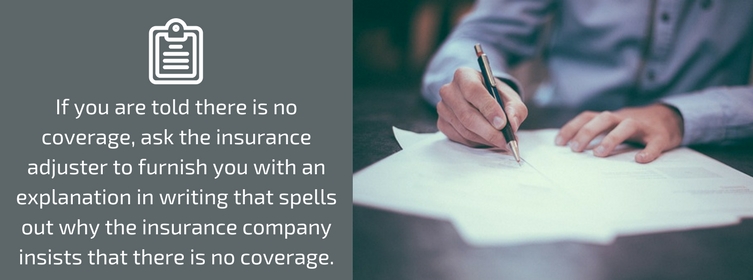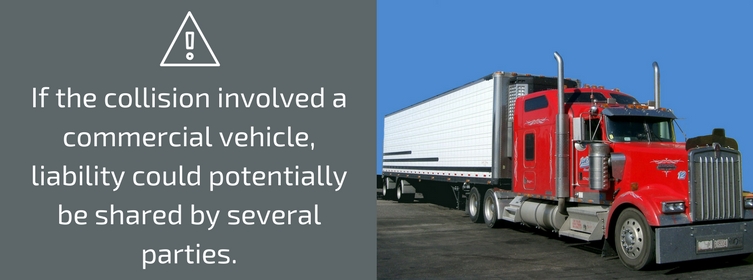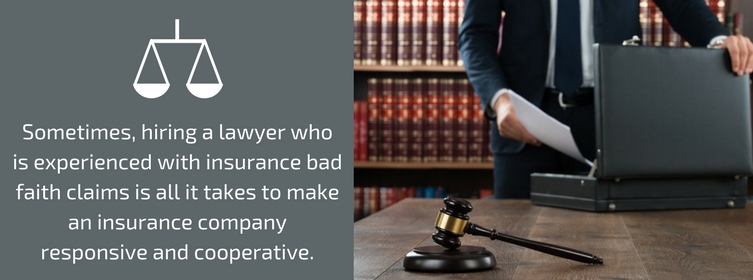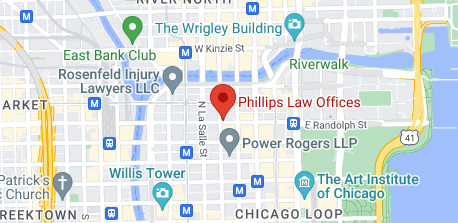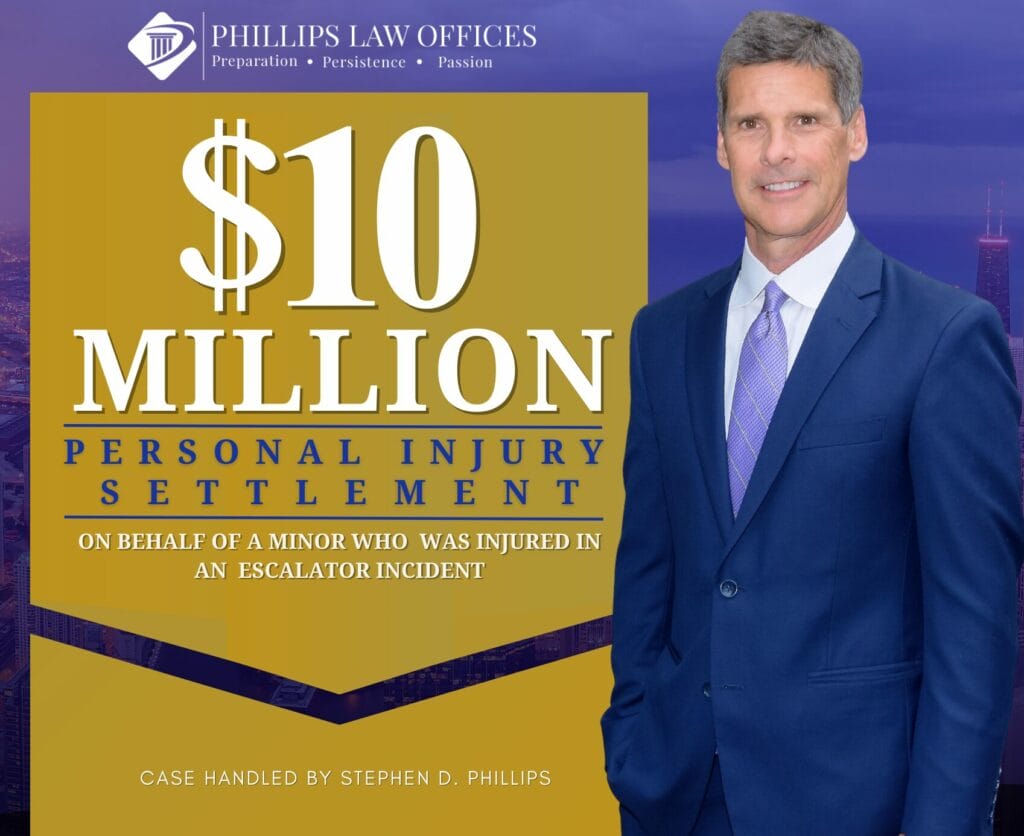More than ten million automobiles, trucks, and other motor vehicles are registered and insured in the state of Illinois. If you are driving or riding in one of those vehicles and you are injured in a traffic collision, you will probably file an injury claim with an insurance company, either your own company or the other driver’s.
However, in some cases, the insurance company may insist that the insurance policy you are making a claim against does not cover your accident. You may even receive a letter from a company attorney telling you there is no coverage.
Don’t be intimidated. That’s almost always an insurance company’s initial negotiating position – not the end of negotiations but the beginning. If a negligent motorist’s auto insurance company – or your own insurance company – will not pay your claim after you’ve been injured in the state of Illinois or if the company refuses to negotiate with you, you may need to file a personal injury lawsuit with the advice and help of an experienced Chicago personal injury attorney.
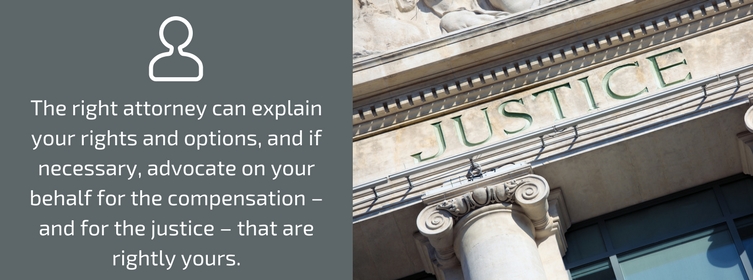
When an insurance company is not straightforward with you – and even if you don’t end up suing the company – you should still have sound legal advice and the insights of an Illinois personal injury lawyer who routinely battles the insurance companies and knows how they operate. The right attorney can explain your rights and options, and if necessary, advocate on your behalf for the compensation – and for the justice – that are rightly yours.
WHAT SHOULD YOU DO IF YOU’RE TOLD THERE’S NO COVERAGE?
So, why would an insurance adjuster tell you that your policy – or the other driver’s policy – does not cover your accident? The adjuster might say that the policy has lapsed or expired, or that the nature or location of the accident makes that accident an exception.
But an insurance company’s claim that there is no coverage does not end your effort to obtain compensation from the company. It’s simply one more element in the overall picture.
If you are told there is no coverage, ask the insurance adjuster to furnish you with an explanation in writing that spells out why the insurance company insists that there is no coverage. The letter should cite the specific provisions in the policy that restrict coverage. The company’s response in writing gives you the opportunity to respond in kind and to challenge the insurance company’s denial of your claim with precise details.
If the insurance adjuster will not provide you with an explanation in writing, write a letter to the adjuster’s manager or claims supervisor. Recount your discussion with the adjuster and the adjuster’s refusal to cooperate with you.
Make a copy of the letter for yourself, and send it “return receipt requested” so that you will have proof that the company received it. Your letter may put pressure on the company to take action, and if you eventually have to take legal action, it’s evidence of the company’s unwillingness to cooperate.
When an adjuster tells you that a policy does not cover your accident and injury, the adjuster may tell you that is the judgment of the insurance company’s lawyers. You may even receive a letter to that effect from an attorney representing the company. Don’t be intimidated – it’s just one attorney’s opinion.
WHAT IF THE INSURANCE COMPANY IS RIGHT AND THERE’S NO COVERAGE?
However, after talking with the adjuster and reading the key sections of the policy, if you suspect that the adjuster is right and the policy offers no coverage, speak to an experienced personal injury attorney. A good personal injury lawyer may be able to identify another party with liability – that is, another potential source of compensation.
If a defective auto part or a poorly-maintained highway had any role in the accident, you make have a claim against the part manufacturer or against the government agency responsible for highway maintenance. If the collision involved a commercial vehicle, liability could potentially be shared by several parties.
From the moment a traffic collision happens, you need to think about liability, insurance coverage, and compensation for damage and injuries. Report any crash with injuries to the police so that you can receive a copy of their traffic crash report. You’re going to need it. Make sure the police include the complete insurance details in their traffic crash report, and then notify your auto insurance company at once.
WHAT IS INSURANCE BAD FAITH?
In the state of Illinois, when an automobile insurance company fails to meet its responsibility to an injury victim and does not exercise “good faith,” that injury victim may file a “bad faith” lawsuit against the insurer.
An insurance company may be operating in bad faith if it handles your claim carelessly or unjustly by giving you no reason – or false reasons – for rejecting your claim or by:
- endlessly asking for more information in order to keep delaying payment
- offering you only a small percentage of your claim’s actual value
- failing to return calls or respond to letters or emails
Sometimes, hiring a lawyer who is experienced with insurance bad faith claims is all it takes to make an insurance company responsive and cooperative. If your bad faith claim against an insurance company prevails, you may be awarded the original amount you were denied plus your attorney fees and any additional monetary penalties ordered by the court against the insurer. Illinois law places a cap on the amount of monetary penalties that can be ordered in insurance bad faith cases.
If you are seriously injured by a negligent driver it may be best to avoid making any statement to the insurance company, agreeing to a settlement, or signing any insurance documents before consulting an Illinois personal injury lawyer. When you’re recovering from serious injuries, you need to focus on your health and let your lawyer handle the legal matters on your behalf.



